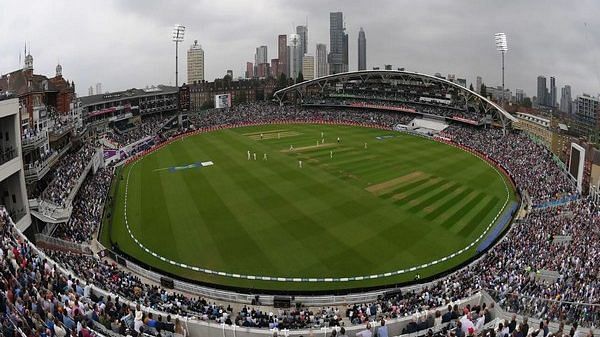New Delhi: The so-called ‘Mankading’, or as Sunil Gavaskar would say ‘Browning’, is no longer ‘unfair play’ and the saliva ban imposed during Covid now becomes permanent. These are part of the new rules of the International Cricket Council that will come into force in all international matches across all formats from 1 October. The ICC has updated the MCC’s 2017 code of the laws of cricket. The changes, announced in March this year, were first trialled at The Hundred cricket league tournament in England.
How will the new rules impact international cricket? Let’s take a look.
‘Mankad’ is run-out now
According to the ICC, the bowler can now run out the non-striker for backing up too much without being unfairly judged or criticised. Infamously called ‘Mankading’–after former Indian cricketer Vinoo Mankad who ran out Australian opener Bill Brown in the second Test of the 1947-48 tour–the act of a bowler running out the batter at the non-striker’s end has divided players, cricket fans and experts. Gavaskar, who has defended bowlers like Ravichandran Ashwin in the past, has been against associating Mankad with the act. “I don’t want an Indian legend’s name to be disparaged,” Gavaskar once told The Indian Express in an interview.
The ICC’s move to simply identify it now as ‘run out’ in the rulebook should end the controversy surrounding it as well as the unfair use of naming it after the Indian player who had ‘run out’ the Australian after giving him a fair warning.
Also read: ‘Mankading’ was never unfair play. Now, a son’s battle to restore dad’s honour has paid off
Use of saliva to polish the ball
The ICC has ruled that the ban on use of saliva to shine one side of the bowl will now become permanent. “This prohibition has been in place for over two years in international cricket as a Covid-related temporary measure and it is considered appropriate for the ban to be made permanent,” it said.
During the Covid-19 outbreak, Dr Peter Harcourt, the chair of the ICC’s medical advisory committee, had said there was “elevated risk of the transmission of the virus through saliva.”
The players started using sweat based on the ICC’s instructions. But bowlers have generally preferred saliva over sweat to shine the ball and so the permanent ban could affect swing bowling.
“Bowling unit needs saliva to keep the new ball shiny and the old ball to reverse swing. Usually (fast bowlers) use less saliva on a new ball compared to the old one,” said Anshuman Gaekwad, former India opener and men’s national cricket team coach.
“The density of saliva is much more helpful than sweat. It brings more heaviness to the ball,” said sports journalist Kunal Wahi.
India’s premier fast bowler Mohammad Shami had said during a media interaction that bowlers prefer saliva. “We use sweat to make the ball heavier and softer but reverse swing needs saliva, it keeps the ball harder, shinier and the ball reverses also. Now the challenge will be not to use our saliva which will be our biggest challenge.”
The impact of saliva ban could be felt most in Test matches where a worn-out ball could still be made to reverse swing.
New batter’s position after caught dismissal
“When a batter is out Caught, the new batter will come in at the end the striker was, regardless of whether the batters crossed prior to the catch being taken,” the ICC said.
“Previously, in case the batters crossed before a catch was taken, the non-striker would take strike the next ball while the new batter would be at the non-striker’s end,” it added.
According to Wahi, this decision “will have a huge impact during the last few overs and might benefit the bowling side more.” “The new batter might or might not be a power hitter” and them taking strike “will break the momentum of the runs coming in,” Wahi said.
Also read: Ashwin ‘Mankading’ Buttler: What comes first – rules or the spirit of cricket?
Reduced time for incoming batters
“An incoming batter will now be required to be ready to take strike within two minutes in Tests and ODIs, while the current threshold of 90 seconds in T20Is remains unchanged,” the ICC said.
“Previously, the incoming batter had three minutes to take strike in ODIs and Tests but it has now been reduced. Failing to do so, the fielding captain can appeal for timed out,” it added.
While the chances of batters being timed out does increase, the impact of reduced time could be seen more in Test matches where the batting team often tries to delay proceedings, especially towards the end of the day’s play, so that fewer overs could be bowled.
BCCI’s ‘impact player’
On a separate note, India’s domestic cricket as well the lodestar Indian Premier League (IPL) could become much more thrilling if the BCCI goes with its plan of introducing the ‘impact player’ rule. Under this, teams can swap one member from the playing XI with a ‘tactical substitute’ during the course of the match. The board is contemplating to try this system in the upcoming season of the Syed Mushtaq Ali Trophy men’s T20 tournament beginning 11 October.
(Edited by Prashant)



